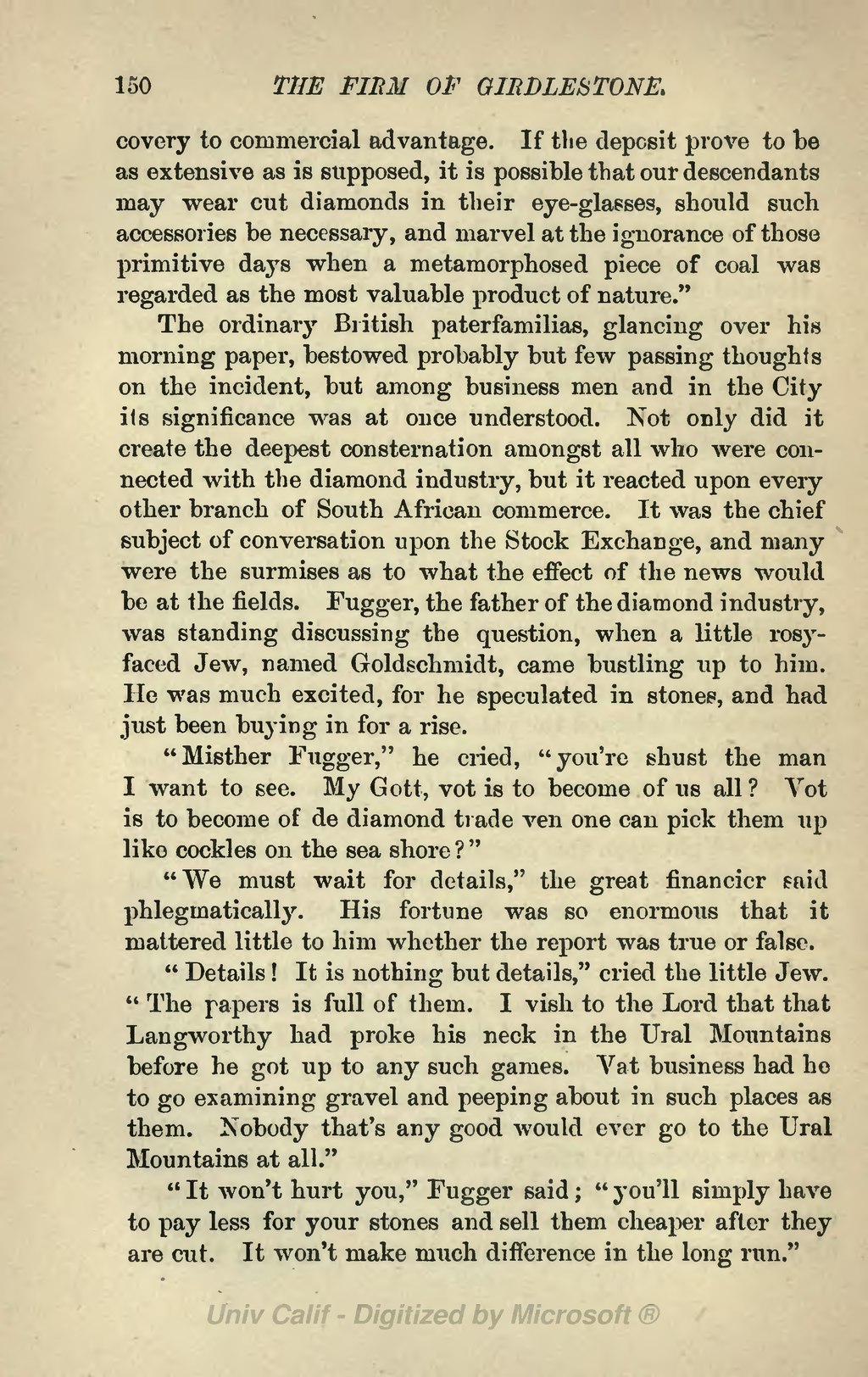covery to commercial advantage. If the deposit prove to be as extensive as is supposed, it is possible that our descendants may wear cut diamonds in their eye-glasses, should such accessories be necessary, and marvel at the ignorance of those primitive days when a metamorphosed piece of coal was regarded as the most valuable product of nature."
The ordinary British paterfamilias, glancing over his morning paper, bestowed probably but few passing thoughts on the incident, but among business men and in the City its significance was at once understood. Not only did it create the deepest consternation amongst all who were connected with the diamond industry, but it reacted upon every other branch of South African commerce. It was the chief subject of conversation upon the Stock Exchange, and many were the surmises as to what the effect of the news would be at the fields. Fugger, the father of the diamond industry, was standing discussing the question, when a little rosy-faced Jew, named Goldschmidt, came bustling up to him. He was much excited, for he speculated in stones, and had just been buying in for a rise.
"Misther Fugger," he cried, "you're shust the man I want to see. My Gott, vot is to become of us all? Vot is to become of de diamond trade ven one can pick them up like cockles on the sea shore?"
"We must wait for details," the great financier said phlegmatically. His fortune was so enormous that it mattered little to him whether the report was true or false.
"Details! It is nothing but details," cried the little Jew. "The papers is full of them. I vish to the Lord that that Langworthy had proke his neck in the Ural Mountains before he got up to any such games. Vat business had he to go examining gravel and peeping about in such places as them. Nobody that's any good would ever go to the Ural Mountains at all."
"It won't hurt you," Fugger said; "you'll simply have to pay less for your stones and sell them cheaper after they are cut. It won't make much difference in the long run."
